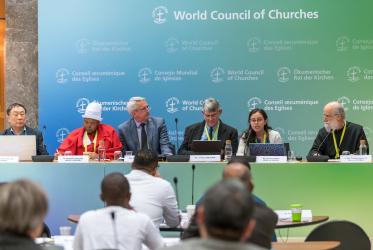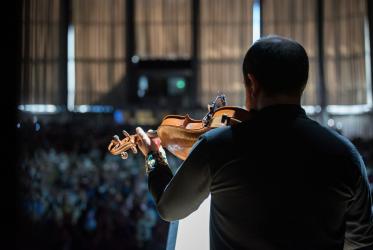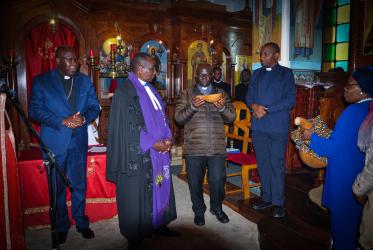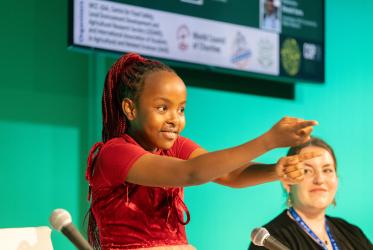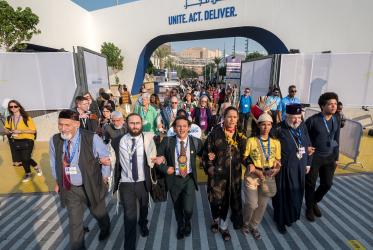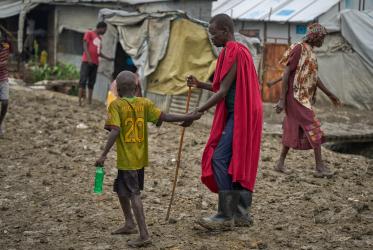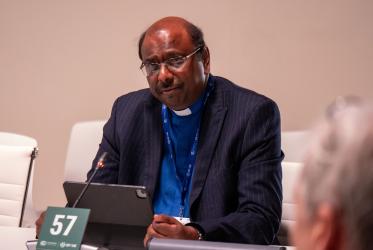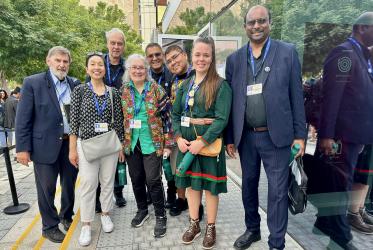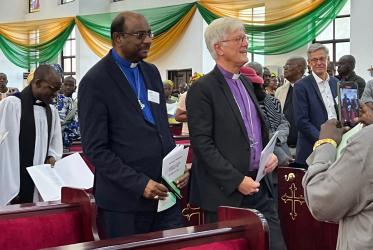Displaying 1 - 20 of 419
“Circle of Prayer” reverberates out from Dover—to the world
21 February 2024
Christians in Kenya mark Week of Prayer for Christian Unity
23 January 2024
Churches in Africa agree on guidelines for disability inclusion
19 December 2023
At COP28, WCC general secretary hopes for “less talk and more walk”
01 December 2023
Beginning soon: 16 Days against Sexual and Gender-Based Violence
21 November 2023

